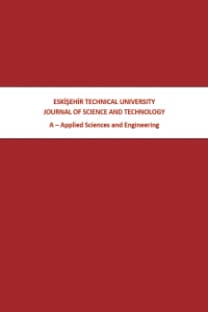Thermodynamic Evaluation of Energy Recovery System For Heavy Duty Diesel Engine by using Organic Rankine Cycle
The internal combustion engine is used daily for transportation and energy production beside their low thermal efficiency level. Most of the thermal energy in such engines is wasted. Therefore, energy recovery in diesel engines are crucial in order to enhance their performance and the environmental penalty. The present paper discusses the energy recovery potential of internal combustion engine cooling system by using organic Rankine cycle (ORC). An heavy-duty diesel engine that has a maximum brake power rating of about 345 kW is selected for the energy recovery potential investigation. Around eighty different type organic fluid is considered as the working fluid. Operability margin of each fluid as a function of cooling system pressure is identified based on fix evaporator and condensation conditions. The mass flow rates required for each ORC system are computed together with the cycle thermal efficiencies for each cycle conditions. The results show that such ORC system is capable of recovering up to 13.6% of the wasted heat which corresponds to a power recovery of about 24 kW and enhances the diesel engine brake efficiency by 2.4%.
___
- [1] Eurostat, 2015, “Modal split of passenger transport”, http://ec.europa.eu/eurostat/statistics-explained/index.php/File:Modal_split_of_passenger_transport_2000-13.jpg
- [2] Eurostat, 2016, “Freight transport in the EU-28”, http://ec.europa.eu/eurostat/statistics-explained/index.php/File:Freight_transport_in_the_EU-28_(1)_modal_split_of_inland_transport_-modes)_(%25_of_total_tonne-km)new.png
- [3] Edwards K.D., Wagner R.M., Briggs T.E., Theiss T.J., 2011, “Defining Engine Efficiency Limits”, Presentations of 17th Directions in Engine-Efficiency and Emissions Research, Detroit USA.
- [4] Schuster A, Karellas S, Kakaras E, Spliethoff H., 2009, “Energetic and economic investigation of organic Rankine cycle applications”, Applied Thermal Engineering, vol. 29, pp.1809-1817.
- [5] Yamamoto T., Furuhata T., Arai N., Mori K., 2001, “Design and testing of the organic Rankine cycle”, Energy, vol 26, pp. 239-251.
- [6] Yang F., Zhang H., Bei C., Song S., Wang E., 2015, “Parametric optimization and performance analysis of ORC (organic Rankine cycle) for diesel engine waste heat recovery with a fin-and-tube evaporator”, Energy, vol. 91, pp.128–141.
- [7] Yağlı H., Koç Y., Koç A., Görgülü A., Tandiroğlu A., 2016, “Parametric optimization and exergetic analysis comparison of subcritical and supercritical organic Rankine cycle (ORC) for biogas fuelled combined heat and power (CHP) engine exhaust gas waste heat”, Energy, vol. 111, pp. 923-932.
- [8] Chen Q., Xu J., Chen H., 2012, “A new design method for organic Rankine cycles with constraint of inlet and outlet heat carrier fluid temperatures coupling with the heat source”, Applied Energy, Vol. 98, pp.562-573.
- [9] Maizza V., Maizza A., 2001, “Unconventional working fluids in organic Rankine-cycles for waste energy recovery systems”, Applied Thermal Engineering, Vol. 21, .Pages 381-390.
- [10] Wang E.H., Zhang H.G., Fan B.Y., Ouyang M.G., Zhao Y., Mu Q.H., 2011, “Study of working fluid selection of organic Rankine cycle (ORC) for engine waste heat recovery”, Energy, vol.36, pp. 3406-3418.
- ISSN: 2667-4211
- Yayın Aralığı: Yılda 4 Sayı
- Başlangıç: 2000
- Yayıncı: Eskişehir Teknik Üniversitesi
